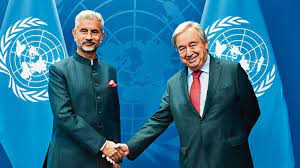Turning inward : On the rise of far-right parties in Europe
In Europe, the far-right is tapping into the public disgruntlement with the establishment
Sunday’s parliamentary elections in Italy were seen as the first major test of Europe’s resolve to keep the anti-establishment far-right away from power amid a devastating cost-of-living crisis and rocketing energy prices aggravated by Russia’s invasion of Ukraine and the West’s retaliatory sanctions on Moscow. However, the results, which saw Giorgia Meloni’s Brothers of Italy emerging as the biggest vote getter, underscored the trend in the continent where far-right parties are on the rise, channelising growing public disgruntlement with the establishment. In the French presidential election in April, Marine Le Pen secured some 41.5% vote, the far-right’s best post-War performance in the country. In the Swedish general election earlier this month, the government of Social Democratic Prime Minister Magdalena Andersson was voted out and the far-right Sweden Democrats emerged as the second largest party. And in Italy, a party with neo-fascist origins is going to form the next government, which would be the country’s farthest right administration since the fall of fascist dictator Benito Mussolini in 1945. When most of the votes were counted, the Brothers of Italy won some 26% vote in both Houses of Parliament. Ms. Meloni’s coalition, which includes Matteo Salvini’s League and Silvio Berlusconi’s Forza Italia, has secured some 44% of votes.
The Brothers of Italy has been known for its anti-immigrant, hard nationalist, protectionist, Eurosceptic views. Ms. Meloni, who took over the reins in 2014, toned down its neo-fascist roots and embraced a more acceptable version of populism — a cocktail of social conservatism and economic welfarism. Her decision not to join Mario Draghi’s outgoing technocratic government also seemed to have helped her turn around the party’s prospects. While most key parties, from the Left to the Right, supported Mr. Draghi’s pro- business, pro-Brussels government in the name of stability, the Brothers of Italy remained the only opposition party. And when the cost-of-living crisis and internal divisions hit the Draghi administration and the country slid into another election, she stood to gain the most. The road ahead is not going to be easy given Italy’s economic problems, divisions within her coalition and foreign policy challenges, including Ukraine. But the rise of the Brothers should set alarm bells ringing across European capitals. More European countries could Fall into recession. The energy crisis is expected to be worse during winter and there is no end in sight to the Ukraine war. If Europe’s establishment parties and governments fail to check the looming economic troubles and address growing discontent, the far-right will continue to exploit the political momentum.
